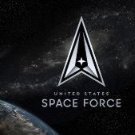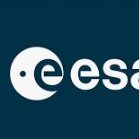Members Can Post Anonymously On This Site
DAF completes 5th annual financial statement audit, continues march toward auditability
-
Similar Topics
-
By NASA
3 min read
Preparations for Next Moonwalk Simulations Underway (and Underwater)
The International Space Station is pictured from the SpaceX Dragon spacecraft by a Crew-8 member shortly after undocking from the Harmony module’s space-facing port as the orbital outpost was soaring 272 miles above the cloudy Patagonia region of South America.NASA NASA is seeking proposals for two new private astronaut missions to the International Space Station, targeted for 2026 and 2027, as the agency continues its commitment to expanding access to space. These private missions enable American commercial companies to further develop capabilities and support a continuous human presence in low Earth orbit.
“We are in an incredible time for human spaceflight, with more opportunities to access space and grow a thriving commercial economy in low Earth orbit,” said Dana Weigel, program manager for the International Space Station at NASA’s Johnson Space Center in Houston. “NASA remains committed to supporting this expansion by leveraging our decades of expertise to help industry gain the experience needed to train and manage crews, conduct research, and develop future destinations. Private astronaut missions are a key part of this effort, providing companies with hands-on opportunities to refine their capabilities and build partnerships that will shape the future of low Earth orbit.”
The new flight opportunities will be the fifth and sixth private astronaut missions to the orbiting laboratory coordinated by NASA. The first three missions were accomplished by Axiom Space in April 2022, May 2023, and January 2024, with a fourth scheduled for no earlier than May 2025.
Each of the new missions may be docked to the space station for up to 14 days. Specific dates depend on spacecraft traffic at the space station and in-orbit activity planning and constraints. Private astronaut missions must be brokered by a U.S. entity and use U.S. transportation spacecraft that meet NASA’s International Space Station visiting vehicle requirements, policies, and procedures. For additional details, refer to Focus Area 4A of NASA Research Announcement (NRA) NNJ13ZBG001N.
Proposals are due by 5 p.m. EDT on Friday, May 30, 2025.
For solicitation information, visit:
https://www.nasa.gov/johnson/jsc-procurement/pam
For more than two decades, people have lived and worked continuously aboard the International Space Station, advancing scientific knowledge and demonstrating new technologies, making research breakthroughs not possible on Earth. The station is a critical testbed for NASA to understand and overcome the challenges of long-duration spaceflight and to expand commercial opportunities in low Earth orbit. As commercial companies focus on providing human space transportation services and destinations as part of a robust low Earth orbit economy, NASA’s Artemis campaign is underway at the Moon, where the agency is preparing for future human exploration of Mars.
Learn more about the International Space Station at:
https://www.nasa.gov/station
Keep Exploring Discover More Topics
Low Earth Orbit Economy
Commercial Space
Commercial Crew Program
Humans In Space
View the full article
-
By NASA
2 min read
Preparations for Next Moonwalk Simulations Underway (and Underwater)
This ultra high-definition video featuring an orange tabby cat named Taters, was streamed from nearly 19 million miles away via laser by NASA’s Deep Space Optical Communications (DSOC) experiment, marking a historic milestone for space communications.Jet Propulsion Laboratory Since it began in 1958, NASA has been charged by law with spreading the word about its work to the widest extent practicable. From typewritten press releases to analog photos and film, the agency has effectively moved into social media and other online communications. NASA’s broad reach across digital platforms has been recognized by the International Academy of Digital Arts and Sciences (IADAS), with 10 nominations across multiple categories for the academy’s 29th annual Webby Awards.
The 2025 Webby nominations demonstrate NASA's dedication to sharing the wonders of space through digital platforms. We believe in the power of digital storytelling to inspire the next generation of explorers.
Michelle R. Jones
Acting Associate Administrator for Communications
Public Voting Opportunities
Voting for the Webby People’s Voice Awards—chosen by the public—is open now through Thursday, April 17. Voting links for each category are listed below.
29th Annual Webby Award Nominees
AI, Immersive & Games
NASA’s Snap It! An Eclipse Photo Adventure
NASA
Kids and Family
Social
NASA Instagram
NASA
Education and Science
Matt Dominick’s X Account: A Visual Journey from Space
NASA, Leidos
Best Photography & Design
NASA’s 2024 Total Solar Eclipse Campaign
NASA
Events and Live streams
NASA’s Webb Telescope: Unfolding a Universe of Wonders
NASA Goddard
Education and Science
Video & Film
2024 Total Solar Eclipse: Through the Eyes of NASA
NASA, Leidos
Events and Live
NASA Streams Historic Cat Video From Deep Space
NASA’s Jet Propulsion Laboratory
Events and Live streams
Websites & Mobile Sites
NASA Website
NASA
Government & Associations
NASA+ Streaming Service
NASA
Television, Film & Streaming
NASA Newsletter
NASA
Business, News and Technology
About the Webby Awards
Established in 1996 during the web’s infancy, The Webbys is presented by the IADAS—a 3000+ member judging body. The Academy is comprised of Executive Members—leading Internet experts, business figures, luminaries, visionaries, and creative celebrities—and associate members who are former Webby winners, nominees and other internet professionals.
The Webby Awards presents two honors in every category—the Webby Award and the Webby People’s Voice Award. Members of the International Academy of Digital Arts and Sciences (IADAS) select the nominees for both awards in each category, as well as the winners of the Webby Awards. In the spirit of the open web, the Webby People’s Voice is chosen by the voting public, and garners millions of votes from all over the world.
View the full article
-
By European Space Agency
Week in images: 24-28 March 2025
Discover our week through the lens
View the full article
-
By NASA
2 min read
Preparations for Next Moonwalk Simulations Underway (and Underwater)
NASA’s X-59 quiet supersonic research aircraft sits on a ramp at Lockheed Martin Skunk Works in Palmdale, California, during sunset. The one-of-a-kind aircraft is powered by a General Electric F414 engine, a variant of the engines used on F/A-18 fighter jets. The engine is mounted above the fuselage to reduce the number of shockwaves that reach the ground. The X-59 is the centerpiece of NASA’s Quesst mission, which aims to demonstrate quiet supersonic flight and enable future commercial travel over land – faster than the speed of sound.Lockheed Martin Corporation/Garry Tice The team behind NASA’s X-59 completed another critical ground test in March, ensuring the quiet supersonic aircraft will be able to maintain a specific speed during operation. The test, known as engine speed hold, is the latest marker of progress as the X-59 nears first flight this year.
“Engine speed hold is essentially the aircraft’s version of cruise control,” said Paul Dees, NASA’s X-59 deputy propulsion lead at the agency’s Armstrong Flight Research Center in Edwards, California. “The pilot engages speed hold at their current speed, then can adjust it incrementally up or down as needed.”
The X-59 team had previously conducted a similar test on the engine – but only as an isolated system. The March test verified the speed hold functions properly after integration into the aircraft’s avionics.
“We needed to verify that speed hold worked not just within the engine itself but as part of the entire aircraft system.” Dees explained. “This test confirmed that all components – software, mechanical linkages, and control laws – work together as intended.”
The successful test confirmed the aircraft’s ability to precisely control speed, which will be invaluable during flight. This capability will increase pilot safety, allowing them to focus on other critical aspects of flight operation.
“The pilot is going to be very busy during first flight, ensuring the aircraft is stable and controllable,” Dees said. “Having speed hold offload some of that workload makes first flight that much safer.”
The team originally planned to check the speed hold as part of an upcoming series of ground test trials where they will feed the aircraft with a robust set of data to verify functionality under both normal and failure conditions, known as aluminum bird tests. But the team recognized a chance to test sooner.
“It was a target of opportunity,” Dees said. “We realized we were ready to test engine speed hold separately while other systems continued with finalizing their software. If we can learn something earlier, that’s always better.”
With every successful test, the integrated NASA and Lockheed Martin team brings the X-59 closer to first flight, and closer to making aviation history through quiet supersonic technology.
Share
Details
Last Updated Mar 26, 2025 EditorDede DiniusContactNicolas Cholulanicolas.h.cholula@nasa.gov Related Terms
Aeronautics Aeronautics Research Mission Directorate Armstrong Flight Research Center Commercial Supersonic Technology Langley Research Center Low Boom Flight Demonstrator Quesst (X-59) Supersonic Flight Keep Exploring Discover More Topics From NASA
Armstrong Flight Research Center
Humans in Space
Climate Change
Solar System
View the full article
-
By NASA
Photo of Greg AutryCredit: University of Central Florida The following is a statement from NASA acting Administrator Janet Petro regarding the nomination by President Donald Trump of Greg Autry on March 24 to serve as the agency’s chief financial officer (CFO):
“The NASA CFO is responsible for executing more than $25 billion in agency funding across a variety of missions, including the Moon and Mars, for the benefit of humanity. With his previous experience as the White House liaison during President Trump’s first administration, as well as his extensive experience in space policy, I look forward to welcoming Greg as our next CFO. If confirmed, we will work together with the current Trump Administration to ensure NASA’s success in maximizing efficiencies, refining our processes, and remaining effective stewards of every tax dollar invested in our agency.”
In addition to his previous experience on the agency review team and as White House liaison at NASA, he also has served on the Commercial Space Transportation Advisory Committee (COMSTAC) at the FAA and is the vice president of the National Space Society.
Autry is the associate provost for Space Commercialization and Strategy at the University of Central Florida, a published author, and entrepreneur. He also serves as a visiting professor at Imperial College London. He formerly served as the director of Space Leadership, Policy, and Business in the Thunderbird School of Global Management and a professor at Arizona State University. He also has taught technology entrepreneurship at the University of Southern California and macroeconomics at the University of California, Irvine.
For more about NASA’s mission, visit:
https://www.nasa.gov
-end-
Bethany Stevens/Amber Jacobson
Headquarters, Washington
202-358-1600
bethany.c.stevens@nasa.gov / amber.c.jacobson@nasa.gov
Share
Details
Last Updated Mar 25, 2025 EditorJennifer M. DoorenLocationNASA Headquarters Related Terms
Office of the Chief Financial Officer (OCFO) View the full article
-
-
Check out these Videos




Recommended Posts
Join the conversation
You can post now and register later. If you have an account, sign in now to post with your account.
Note: Your post will require moderator approval before it will be visible.